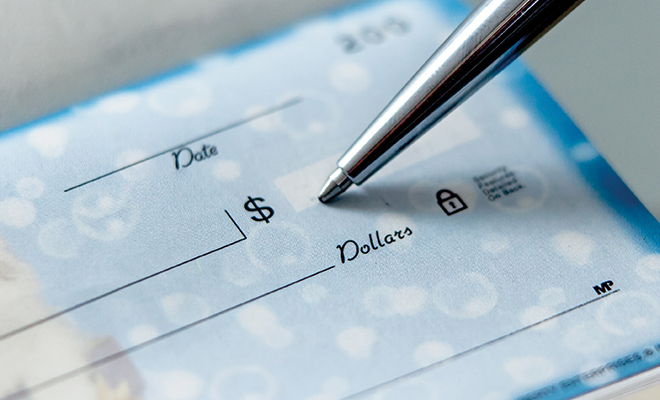
Checking Responsibility: Is Your Teen Ready?
There comes a time in everyone’s life when it makes sense to open a checking account.
If you are considering whether this is the right time for your teenager, there are a few things to consider. It’s normal for a parent to fret over how their child will handle finances as they enter adulthood. Not all parents spend time instilling good financial habits while they are underage. But if you are one of the parents who did teach your child about credit, you deserve a pat on the back.
Learning to balance a checking account and budgeting money are skills your child will need for life. Managing money takes a lot of responsibility and if you feel your child has shown a good level of responsibility with other things in life such as homework or chores, then it’s likely they will be responsible with money.
Concepts such as budgeting, saving, spending and keeping good financial records will be forever entwined in your child’s life, and a checking account will go a long way in teaching your child the basics. If your teenager is working for her own money, it will help her to understand just how far a dollar goes if she can see it in a checking account. If your child has been known to spend money wisely, is trustworthy and usually sets goals for himself, then it’s probably the right time to get him a checking account.
On the other hand, if you feel your child is not quite ready, it’s perfectly fine to continue giving them cash. You certainly don’t want your teen to get into trouble with their account and keep it from you.
The first step is educating your teenager on the differences between using cash, checking accounts and debit cards, and credit cards. Show them how you navigate among these tools and why. For example, explain why you may only pay the minimum due on your credit card, but prefer to pay cash for a new sweater.
If your child already has a savings account and has proved he can handle it, adding a checking account with a debit card will be a logical next step. Be sure the bank will limit the funds available in the account. Most banks and savings institutions have special savings and checking accounts for minors.
Still, your teen should understand exactly what happens if they write a check or make an ATM withdrawal and they don’t have enough money in the account. While it’s obvious to you as a parent, someone who has never had a checking account won’t understand that banks will let them spend more than they have and bill them for it.
In the U.S., a teen can’t have signing privileges on an account until they are at least 13. Until they are 18, you, as the adult, will ultimately be responsible for the account.
Explain the concept of a checking overdraft and the heavy fees associated with it. It can also be an education in the extended legal consequences of issuing insufficient funds checks. Stress the importance of not losing their debit card, or sharing or writing down their PIN. They should know to report their lost card immediately to the bank. They will need to learn how to use ATM cards, too. It’s best not to assume your child already knows how to use these machines.
Teach your teen how to balance their checkbook every month to avoid overdrawing. Go over using text and mobile alerts that will keep your teen aware of when payments clear or their balance is low. Show your teen how to use online banking to transfer funds between checking and savings accounts. Teens today are digital natives, so these will be quick concepts for them to grasp.
Checking accounts also allow your teen to set up direct deposits from his employer, which in turn presents an opportunity to set up an automatic withdrawal to a savings account each pay period. This will reinforce the concept of budgeting and saving. Your teen can track spending through their checking account and save for large purchases such as a car.
When you are ready to open an account, be sure to involve your teen in all the decisions, including which banking institution to use. Even though they will most likely defer to the bank you use, it gives your teen added confidence and responsibility. Suggest they do research on the internet before deciding. Perhaps they will learn a few tips on the best practices of having a checking account.
Hopefully, your teen will experience a healthy money curiosity along the way, and will soon be asking you about high-return savings options, investment opportunities and long-term financial planning goals. ■
Sources: bankrate.com, moneycrush.com and moneywise.com.







